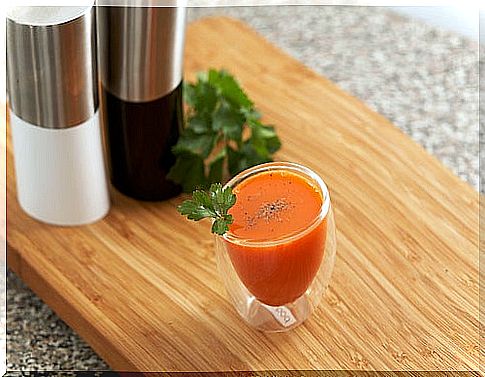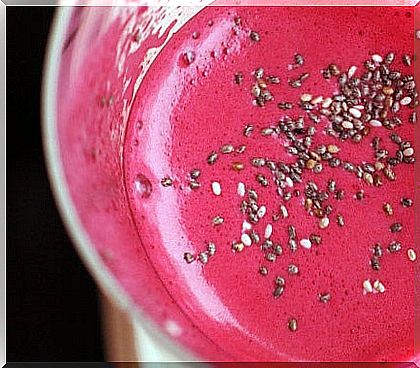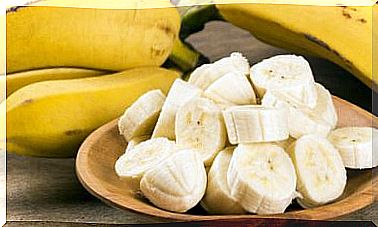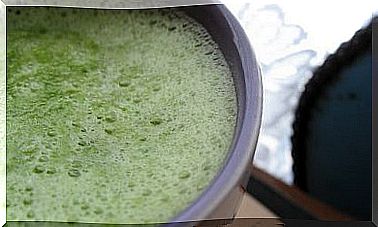Vegetable Juices For After Training
We share with you some delicious vegetable juices that can provide you with good doses of nutrients and that you can ingest at any time of the day, especially to hydrate you after a training session.

Natural vegetable juices are light, delicious and healthy, since they provide us with a large amount of vitamins and minerals in just a few drinks. In addition, they are very easy to prepare.
In this article, we give you some proposals for original vegetable juices that will be a delight for the palate and also, they will come in handy after training.
Vegetable juices for after training
Previous advice
- If we are going to consume fresh food, we always recommend that it be as natural as possible, and even better if it is organic, since this way we guarantee that it does not contain pesticides.
- We can drink these juices daily, whenever we want. They are highly recommended to rehydrate after a workout.
- If we do not have a blender, we can opt for the smoothies, grinding the vegetables with water, and then passing them, if we wish, through a Chinese strainer, to remove the pulp.
- We can use the leftover pulp to make delicious and healthy desserts such as compotes, jams, etc.
Pear, celery and ginger
This juice of different flavors, with a sweet and spicy touch, would bring us the following benefits:
- It would help to eliminate excess fluids, in cases of swelling, heavy legs, etc.
- It would provide us with silicon, an essential mineral for the beauty of our hair, skin and nails and for the health of our bones and joints.
- Thanks to the high content of antioxidants in ginger, it would fight free radicals that cause degenerative diseases and premature aging.
The ginger should be fresh, and a small piece will suffice, but if we don’t have it, we can use a little powdered ginger. If we want to serve it as an aperitif, we can decorate it with pieces of candied ginger
Apple, carrot and parsley

Apple, carrot and parsley juice is a classic among vegetable juices to consume after training. This is because:
- It is rich in antioxidants and vitamin C
- It would be good for our skin, teeth and bones
- It provides us with iron and, therefore, would help fight anemia
- It is believed that it would help combat fatigue
Tomato, cucumber and arugula
This juice may remind us of gazpacho, but it is a simpler recipe. Although it is also recommended to drink after training due to its high content of nutrients:
- Several studies indicate that tomato would help fight arterial hypertension, while providing a good dose of antioxidants.
- Cucumber, meanwhile, is attributed diuretic properties that would help eliminate excess fluids from our body.
Beets, cabbage and radishes

This juice will attract our attention for its purple color, thanks to the beet, but also for its many contributions:
- Due to its fiber content, it would have important laxative effects , which would help fight constipation
- Its contribution of iron would help fight anemia and states of exhaustion
- Rich in folic acid, it would be recommended during pregnancy
- We will decorate it with a roasted sesame seeds
Lettuce, cucumber and mint
This refreshing juice may surprise us with its ingredients, but its benefits will make it an irresistible food and one of the most recommended vegetable juices :
- In the first place, various investigations have suggested that some varieties of lettuce would have relaxing properties that would help us combat states of stress, nervousness, anxiety, irritability or insomnia.
- It is believed that it would help improve heavy digestions
To enjoy its benefits, we recommend choosing a dark colored lettuce (we will always avoid the iceberg variety) and fresh mint. The cucumber, if it is organic, we can liquefy it with its skin. We will decorate it with a fresh mint leaf.
Conclution
In conclusion, these vegetable juices would provide different nutrients that would be good in any situation, but especially to hydrate after exercising. To expand the information contained in this article, we recommend consulting the bibliography. Notwithstanding the foregoing, we recommend adequate medical follow-up.









